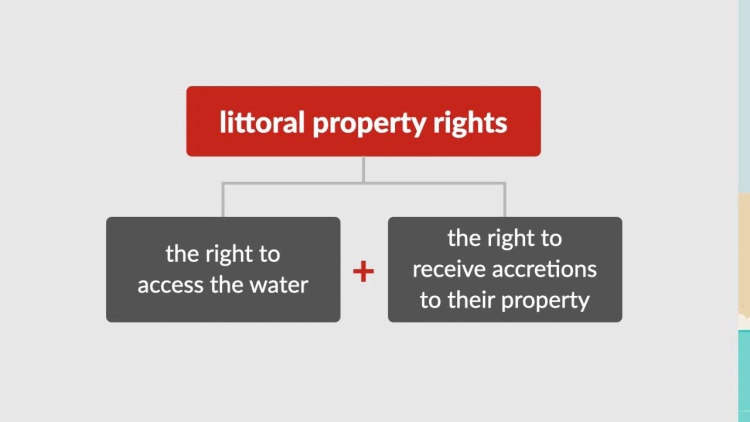Stop the Beach Renourishment, Inc. v. Florida Department of Environmental Protection
United States Supreme Court
560 U.S. 702 (2010)
- Written by Craig Conway, LLM
Facts
The Florida Department of Environmental Protection (defendant) granted the City of Destin and Walton County, Florida, a permit to restore a portion of oceanfront beach by adding 75 feet of dry sand to the ocean side of the mean high-water line (i.e., the average reach of high tide, which was also the boundary between privately owned property and state-owned property). Stop the Beach Renourishment, Inc. (SBR) (plaintiffs), a group of beachfront-property owners in the project’s area, brought suit, alleging that the project constituted an uncompensated taking under the Fifth Amendment. Specifically, SBR alleged that the project infringed upon their rights to receive natural accretions to their property—which they were entitled to under state law—because after the project’s completion, the accretions would occur beyond the boundary line and would be reaped by the state, rather than the property owners. In addition, SBR claimed that the project was an unconstitutional taking of their right to have their property contact the ocean directly. The district court of appeal ruled in SBR’s favor, but the Florida Supreme Court reversed. The United States Supreme Court granted certiorari.
Rule of Law
Issue
Holding and Reasoning (Scalia, J.)
Concurrence (Kennedy, J.)
Concurrence (Breyer, J.)
What to do next…
Here's why 907,000 law students have relied on our case briefs:
- Written by law professors and practitioners, not other law students. 47,100 briefs, keyed to 996 casebooks. Top-notch customer support.
- The right amount of information, includes the facts, issues, rule of law, holding and reasoning, and any concurrences and dissents.
- Access in your classes, works on your mobile and tablet. Massive library of related video lessons and high quality multiple-choice questions.
- Easy to use, uniform format for every case brief. Written in plain English, not in legalese. Our briefs summarize and simplify; they don’t just repeat the court’s language.





